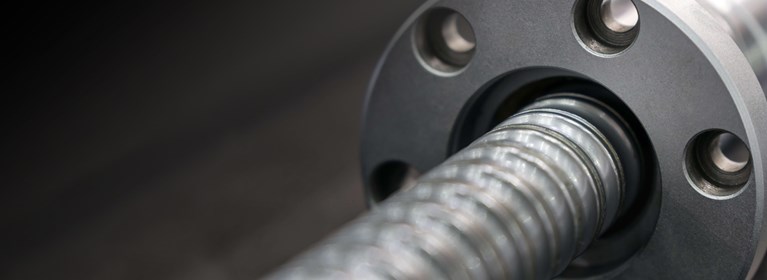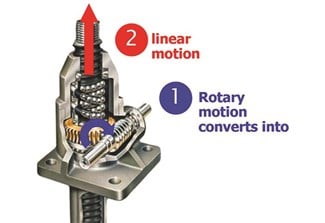
The Importance of Having a Wear-Indicator Nut on a Screw Jack
Should you have a wear indicator nut on a screw jack?
Power & Motion Technology | Safety and Training | By Duff-Norton | 30 Sep 2019
Without a wear indicator nut failure of the device could be sudden, unexpected and dangerous.
There are plenty of factors you should consider when choosing a screw jack:
- What is the load, and how far will it need to travel?
- What lift speeds and screw types are required?
- What temperatures can it operate in?
It’s easy to focus on these types of questions and not think about screw jack wear – after all, it’s a new purchase. Wear and tear is a future problem. But, prepare now, and you will save later.
Where the load is above the nut assembly, such as in the case of a lift platform, it’s vital to know when a jack is close to failing, especially if someone is working with or near the machinery. This remains the case even if it’s one of a connected system of screw jacks. The remaining jacks may take the strain, but the load will become imbalanced, and prematurely or unevenly wear the remaining jacks. Then, gravity does the rest.
The role of a wear indicator nut
A wear-indicator nut gives you the chance to change out parts before they reach this point. With use, a nut thread will wear and tooth thickness will decrease. As this happens, the gap between the follower nut and the primary load-bearing nut will close. You can check this with a filler gage or proximity sensor.
The follower or wear indicator nut is usually made of bronze or steel. If it is made of steel, as the gap closes the nut does begin to hold some of the weight. In doing so, it creates a noise that indicates the part is nearing the end of its life.
So, a wear-indicator nut makes a screw jack safer. It can even be a cost-saving feature, improving the longevity of linked screw jacks, as in the example above. If you want to know more about how Duff-Norton’s products can help you stay safe without breaking the bank, contact us, today.
Lift, Position, and Support with Columbus McKinnon Screw Jacks
Learn everything you need to know about the screw jacks available from Columbus McKinnon including the two types of screw jack systems, the main types of screw jacks (machine and ball) and, available features (stainless steel, anti-backlash, ,heavy-duty and more).




 Central America-Andean-Caribbean - EN
Central America-Andean-Caribbean - EN



